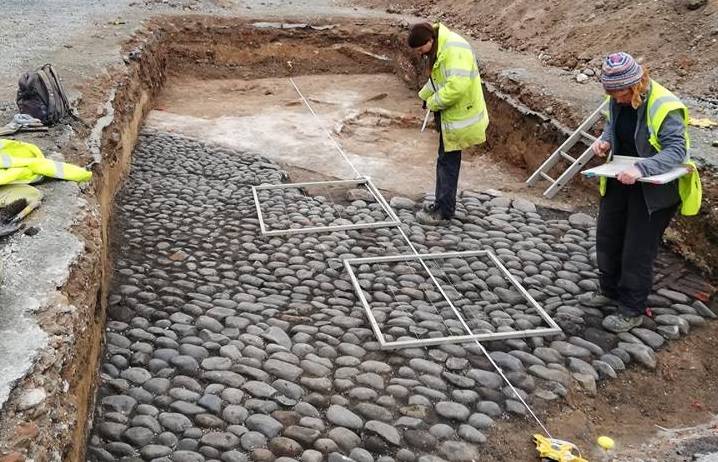A decision record, published today, confirms that Hull City Council is moving forward with the first phase of a £1m National Highways (formerly Highways England) funded programme.
Work will now begin on the South Blockhouse Project, which sees the Council’s in-house archaeologists, Humber Field Archaeology, deliver a community archaeology programme including archaeological works and the creation of a visitor attraction, on the site of the 16th century South Blockhouse fortress.
Located on the east bank of the River Hull, the South Blockhouse is a scheduled ancient monument of both national and local importance, unique in its cloverleaf design and rare layout as a self-contained fort. Its construction was ordered by Henry VIII in 1541 to support military campaigns and to protect Hull as a vital port from internal and external threats, working as one element in a larger scheme of state-of-the art defences.
Councillor Daren Hale, Leader of Hull City Council and responsible for Economic Investment and Regeneration, said:
“It’s great that Hull residents can be directly involved in giving this historical site a new purpose – what was once a vital line of defence to protect the city will now be a place of education and will offer exclusive archaeological opportunities.
“This project has already revealed exciting and previously unknown history about our city and we’re confident it will become a popular visitor attraction in its own right.
“Thanks to support from National Highways this underdeveloped, yet important point of interest will be conserved to raise awareness and reveal more about its past and its role to protect the city.”
The archaeology programme will give members of the public the opportunity to work with professional archaeologists during excavations of the site and the analysis of the finds once complete. Keen archaeologists will have plenty of time to be involved, as the three-month long excavations are expected to start in summer 2022 and the full archaeology programme will last until December 2024.
Fran Oliver, Project Manager of the ongoing National Highways’ A63 Castle Street major project in Hull city centre, added:
“Our work aims to go above and beyond building, operating, maintaining and improving roads.
“As we have been doing at the city’s Trinity Burial Ground with our archaeology work, preserving the area’s cultural heritage for future generations is extremely important. So, we’re delighted to be funding work which will soon start on uncovering the history of this amazing Tudor blockhouse to the local community.”
The project will build upon previous community archaeological investigations, the latest of which not only revealed the monument’s cloverleaf walls and accompanying gun emplacements, but also saw archaeologists uncover a large section of an ancient cast iron cannon. The project will also endeavour to unearth history of the wider area, using physical and digital interpretation.
Keith Emerick, Historic England Inspector of Ancient Monuments, said:
“The South Blockhouse is a nationally important site, part of the much bigger Citadel. We will be happy to assist with a project which brings opportunities for public participation and raises the profile of heritage in Hull.”
Following the excavations, the site will be transformed into a permanent visitor attraction to showcase the monument’s national importance and its role in Hull’s history. Designers will begin work on options for the attraction early in 2022 and public consultation will take place in spring 2022, before a decision on the final design is made.
Project timelines to be expected are as follows:
- Archaeological excavations of the South Blockhouse – July, August and September 2022
- Archaeological post-excavation assessment, analysis and publication of findings – October 2022 to December 2024
- Consultation on design options for South Blockhouse visitor attraction – spring 2022
- Site development for visitor attraction – late 2022 to late 2024
National Highways manages four designated funds, allocated by the Government, to deliver benefits above and beyond building, maintaining and operating England’s strategic roads.
From protecting the environment and enhancing the landscape around roads, to improving safety, reducing congestion, and supporting communities, the aim is to make a positive difference to people’s lives.
Find out more information on National Highways’ designated funds.
Click here to find out more about the ongoing A63 Castle Street major project
